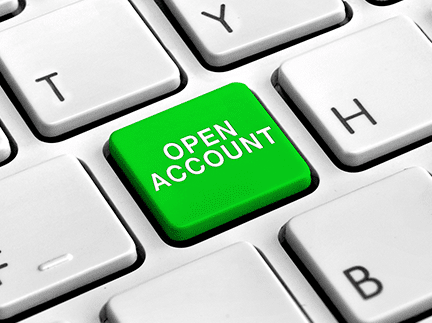Everything You Should Know About Bank Account Opening for Non-Residents
Everything You Should Know About Bank Account Opening for Non-Residents
Blog Article
Top Tips for Opening a Bank Account: Guarantee Smooth and Effective Arrangement
Opening up a bank account may seem straightforward, yet a systematic approach can significantly improve the experience and set the phase for a successful financial connection. By understanding the range of account kinds offered, collecting crucial documents, and comparing banking institutions, one can stay clear of common risks. Furthermore, thinking about the nuances in between online and traditional financial options is crucial. The most critical action typically exists in comprehensively examining the problems and terms-- an aspect several overlook. What complies with might make all the distinction in your financial experience and monetary health.
Understand Different Account Types
When opening a checking account, it is necessary to familiarize on your own with the different account types readily available. Understanding these alternatives will enable you to choose an account that ideal fits your monetary needs and goals.

Interest-bearing accounts, on the various other hand, are created for conserving cash and normally supply higher rate of interest than inspecting accounts. They may have withdrawal restrictions, motivating you to conserve with time. For people looking for a higher yield on their cost savings, CDs supply set interest prices for a specified term, yet they need you to lock in your funds until maturity.
Additionally, there are customized accounts like money market accounts and retired life accounts, each with one-of-a-kind functions and advantages. By adequately comprehending these account types, you can make informed choices that align with your economic technique and way of life.
Gather Required Paperwork
Collecting the required documentation is an essential action in the process of opening a checking account. Proper documentation not just promotes a smooth application procedure yet likewise aids in verifying your identity, making sure conformity with regulatory needs.
Generally, you will need to supply a government-issued photo recognition, such as a key or motorist's license. This acts as proof of identification and residency. In addition, a Social Safety And Security Number (SSN) or Specific Taxpayer Recognition Number (ITIN) is often needed for tax reporting functions. Some bankss may also request proof of address, which can be shown through utility expenses, lease agreements, or bank statements.

Furthermore, if you are a minor, parental consent and recognition may be required. It's recommended to contact the specific bank regarding their documentation needs beforehand, as these can differ. By making certain all necessary records are prepared, you can expedite the account opening process and prevent prospective hold-ups.
Study Banks and Fees
A detailed comparison of different bankss and their cost structures is necessary for picking the best banks for your demands. Different bankss offer a range of solutions, and understanding their fees can dramatically affect your total banking experience. Begin by identifying your financial requirements, such as whether you require an inspecting account, interest-bearing account, or both.
Following, analyze the fee structures connected with each account type. Typical costs include regular monthly maintenance charges, overdraft charges, ATM usage costs, and foreign deal costs. Some bankss might forgo these charges if you maintain a minimum equilibrium or established direct deposits.
Additionally, investigate any type of charges connected to account services, such as cable see this here transfers, printed declarations, or check orders. It is likewise important to assess the rate of interest provided on interest-bearing accounts, as these can differ significantly among establishments.
Consider Online vs. In-Person
Selecting in between online and in-person banking can dramatically affect your total financial experience and comfort (bank account opening). Each alternative presents special benefits that cater to different preferences and way of livings
On-line financial offers a high degree of flexibility and availability. With the ability to handle your account from anywhere utilizing a mobile phone or computer system, online financial permits fast transactions, balance checks, and costs settlements any time. In addition, numerous on the internet bankss give competitive rates of interest and reduced costs due to lowered overhead prices.
On the other hand, in-person financial provides a personal touch that some customers might locate reassuring. Visiting a physical branch allows for straight interaction with bank representatives, which can be especially advantageous for complex inquiries or financial suggestions. In-person financial likewise makes it possible for consumers to transfer cash money, obtain instantaneous help, and construct partnerships with team, cultivating a sense of trust fund.
Inevitably, the choice between online and in-person banking need to be based on your private requirements, comfort degree with innovation, and the certain services you call for. Consider your banking behaviors and preferences very carefully to identify which alternative lines up best with your financial objectives.
Review Terms and Conditions

When evaluating the problems and terms, pay very close attention to crucial components such as fees, passion prices, and account functions. you could try here Search for monthly upkeep charges, purchase restrictions, and charges for overdrafts or early withdrawals (bank account opening). Comprehending these fees can help you prevent unexpected costs and manage your financial resources better
Furthermore, take into consideration the rate of interest supplied on financial savings or inspecting accounts. Higher interest prices can significantly impact your cost savings gradually. It's also important to understand the terms connected to bonuses, benefits programs, and promotional deals, as these can improve your financial experience.
Finally, guarantee you understand the bank's policies on customer support, conflict resolution, and privacy. Familiarizing yourself with these problems will certainly empower you to make enlightened decisions and establish an effective connection with your bank. Taking the time to completely assess the conditions and terms can protect against future More Info misconceptions and foster long-lasting complete satisfaction with your financial experience.
Final Thought
In conclusion, an educated strategy to opening a savings account assists in a reliable and smooth setup process. Recognizing the various account types, collecting necessary paperwork, and investigating bankss and linked costs are critical actions. Furthermore, evaluating the advantages of in-person versus on-line banking options can improve ease. Finally, cautious review of problems and terms guarantees quality relating to fees, functions, and account owner responsibilities, inevitably bring about an extra satisfying banking experience.
Opening up a bank account might appear straightforward, yet a systematic strategy can considerably improve the experience and set the stage for a successful financial relationship.The most common types of accounts include checking accounts, savings accounts, and certifications of down payment (CDs)Cost savings accounts, on the various other hand, are created for conserving money and normally offer greater interest rates than inspecting accounts. Begin by identifying your banking demands, such as whether you require a checking account, financial savings account, or both.
Comprehending the various account types, gathering essential documents, and researching bankss and linked charges are vital steps.
Report this page